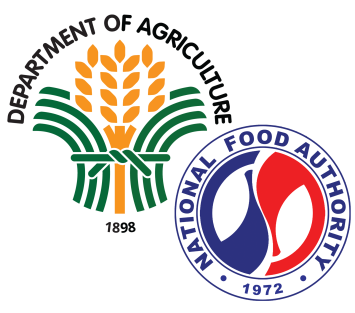

The National Food Authority was created through Presidential Decree No. 4 dated September 26, 1972, under the name National Grains Authority, (NGA) with the mission of promoting the integrated growth and development of the grains industry covering rice, corn, feed grains and other grains like sorghum, mongo, and peanut. This decree abolished two agencies, namely, the Rice and Corn Board (RICOB) and the Rice and Corn Administration (RCA) but absorbed their respective functions.
The former was then regulating the rice and corn retail trade and was tasked to nationalize it within a target date. The latter was in-charged of marketing or distribution of government low-priced rice especially during lean months. In addition, the new agency was vested additional functions aimed at developing the grains post-harvest systems and processes. Among others, the NGA supported the paddy production program of the government referred to as the Masagana’99 Program, which was geared toward rice self-sufficiency. It engaged in massive paddy procurement at government support price(s), and at limited volume the country joined the family of rice exporting countries from 1977 to 1981.
On January 14, 1981 Presidential Decree (PD) No. 1770 was issued which reconstituted the NGA into what is now the National Food Authority (NFA). This decree, widened the agency’s social responsibilities and commodity coverage to include, in addition to grains, other food items like raw or fresh fruits and vegetables and fish and marine, manufactured, processed, or packaged food products, and these were collectively referred to as non-grains commodities. This law was the basis of the Kadiwa chain of stores or government retail stores, which sold low-priced basic food and household items which were established within the National Capital Region and in all the provinces of the country.
On May 31, 1985, Executive Order No. 1028 was issued and provided for the deregulation of NFA’s non-grains marketing activities. This resulted in the termination of NFA’s non-grains trading activities and the return of feedgrains and wheat importation to the private sector as well as the lifting of price controls/ceilings on rice and corn. As such, at the end of 1986, all the Kadiwa Stores had been devolved to the private sector and /or closed.
On May 5, 2014, Executive Order No. 165 reassigned the National Food Authority to the Office of the President. The NFA was vested the functions of ensuring the food security of the country and the stability of supply and price of the staple grain-rice. It performed these functions through various activities and strategies, which included procurement of paddy from individual bonafide farmers and their organizations, buffer stocking, processing activities, dispersal of paddy and milled rice to strategic locations, and distribution of the staple grain to various marketing outlets at appropriate times of the year.
On February 14, 2019, the Rice Tariffication Law, fully known as Republic Act No. 11203, "An Act Liberalizing the Importation, Exportation, and Trading of Rice, Lifting for the Purpose the Quantitative Import Restriction on Rice, and for Other Purposes" was approved. RA 11203 transforms the NFA from a Trading and Regulatory Agency to a Buffer Stocking Agency. The role of the National Food Authority (NFA) was refocused on the acquisition, maintenance, and distribution of rice buffer stock. The law stipulates that the NFA shall maintain an optimal level of national rice inventory to be sourced solely from local farmers and to distribute rice during emergency/calamity situations and sustain the disaster relief program of the government during natural or man-made calamities. Effective March 5, 2019, the NFA ceased performing its regulatory and licensing functions over the international and domestic trading of rice.
The NFA shall procure palay locally and maintain the optimal level of buffer stock at all times strategically located across the country. It shall manage efficiently and effectively the acquisition, quality maintenance, and disposition of the buffer stock during emergencies and calamities.
The NFA envisions itself to be a cost-efficient corporate entity, capable of managing the country's buffer stock within the next ten years.
Professionalism
Service Excellence
Accountability
Organizational Awareness and Commitment
Interpersonal Relations
| POSITION | NAME |
|---|---|
| No results found | |